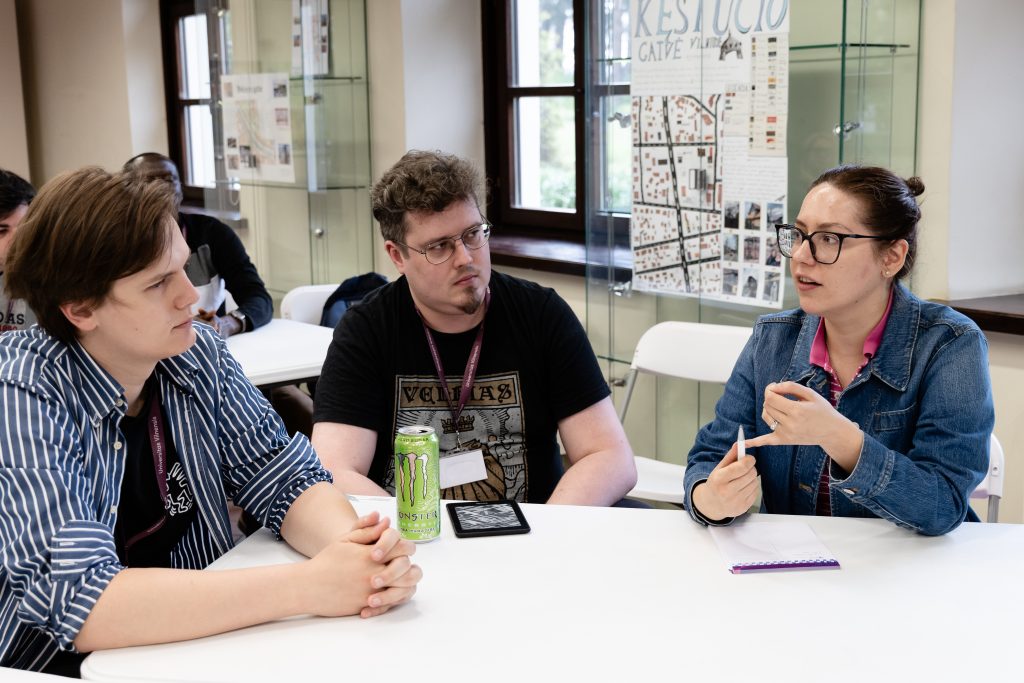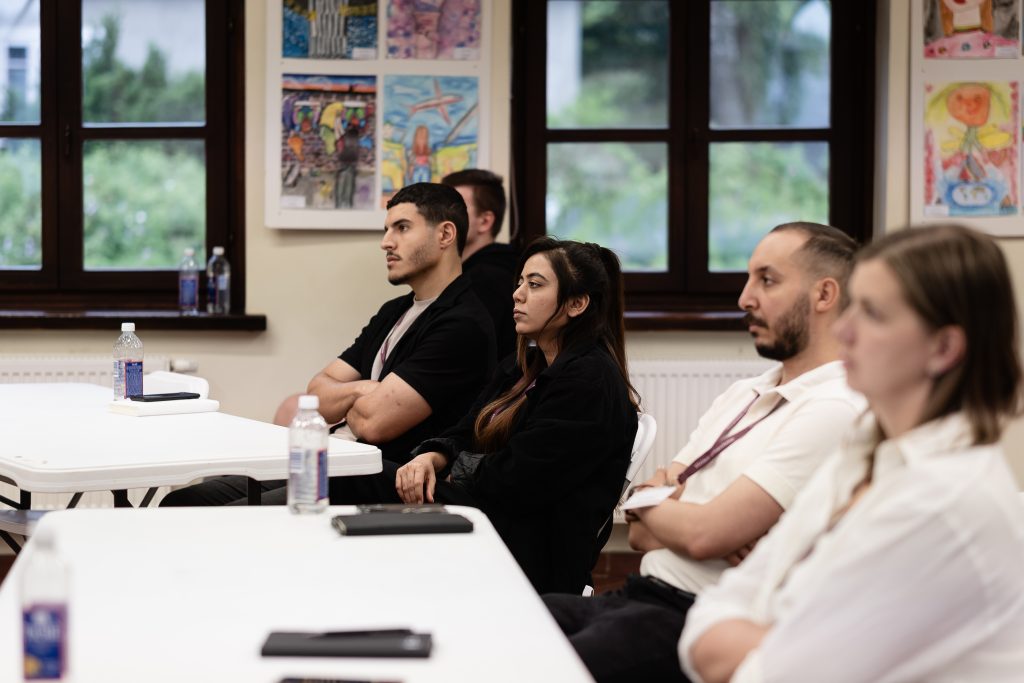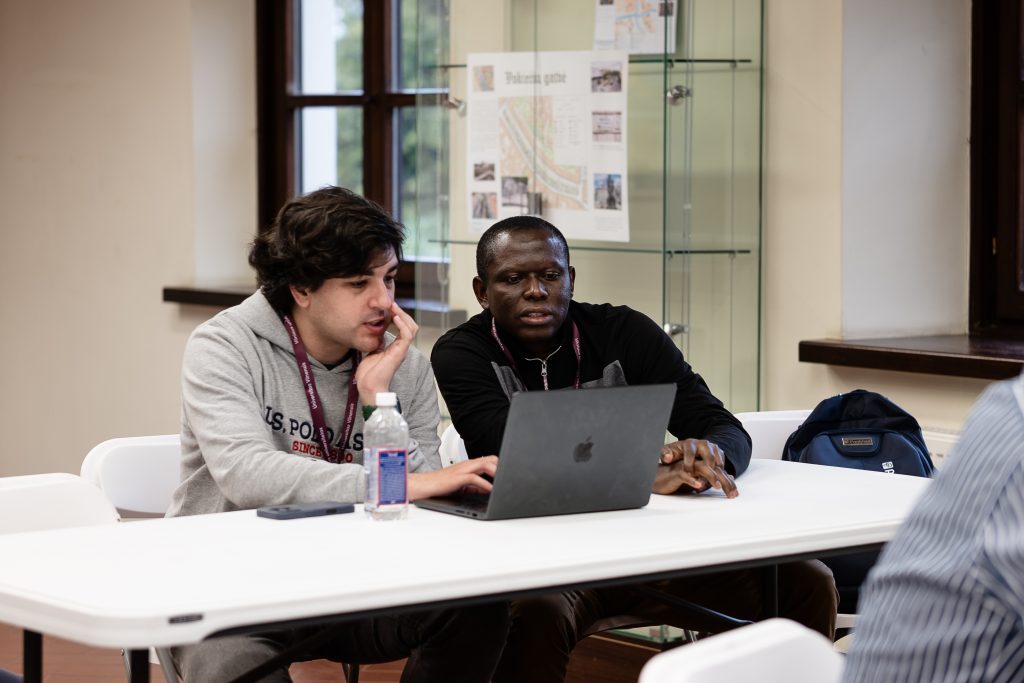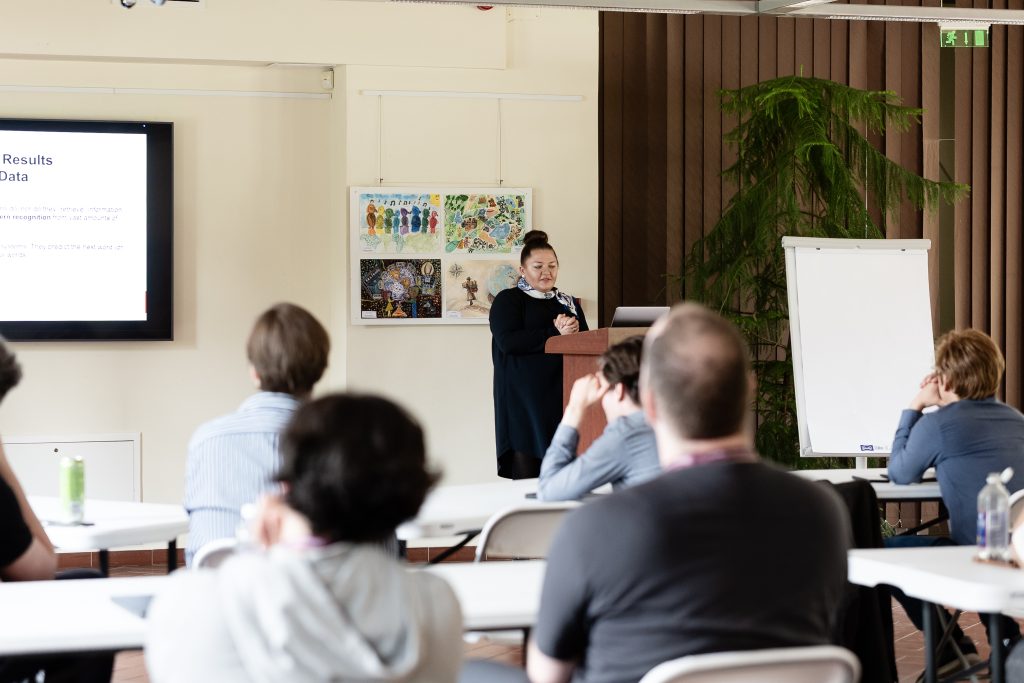International Interdisciplinary Doctoral Summer School held at Vilnius University
|
07 Jul 2025|
07 Jul 2025On 16–20 June, Vilnius University (VU) hosted the third edition of the international interdisciplinary summer school for doctoral students titled ‘AI and Beyond: Thinking Machines, Thinking Humans’.
PhD students from Arqus universities were invited to attend. The summer school welcomed participants from the University of Granada.
“While it may seem like artificial intelligence (AI) is very widely discussed, in practice, this topic is inexhaustible. Every day brings new challenges we may not yet be fully equipped to address. That is why we chose to dedicate this year’s summer school to exploring the role of AI in research and to seek answers together,” said Gabija Strumylaitė, one of the organisers and a doctoral studies coordinator, as she introduced the school’s concept to the participants.
The VU Pro-Rector for Research, Prof. Gintaras Valušis, welcomed the doctoral students. Representatives from the Office of the Ombudsperson for Academic Ethics and Procedures – Eglė Ozolinčiūtė and Tadas Sobenka – delivered presentations on the impact of AI on research ethics. After the official opening, participants enjoyed a guided tour of the historic university ensemble, led by colleagues from the VU Museum.
On 17–19 June, at the VU Botanical Garden in Kairėnai, the doctoral students attended lectures and workshops featuring seven speakers who offered diverse academic perspectives on AI’s impact on research.
The perspective of the exact sciences was presented by Prof. Virginijus Marcinkevičius, Dr Marco Marcozzi, Dr Gražina Korvel, and Linas Aidokas from the Faculty of Mathematics and Informatics. Topics included machine learning applications, speech signal processing, and AI in modern robotics.
Dr Neringa Gaubienė from the Faculty of Law introduced the topic of AI regulation. Together with her student Ieva Andrijauskaitė, she also delivered a practical workshop titled ‘AI Literacy Under the AI Act: Developing a Strategy to Ensure Adequate AI Literacy at Vilnius University’.
Dr Aleksandras Voicikas from the VU Life Sciences Centre introduced the participants to the neuroscientific perspective. The scientist also led a workshop where doctoral students had the opportunity to try out the research equipment he uses to study human brain activity.
The academic part of the summer school programme concluded with a lecture by philosopher Prof. Naglis Kardelis, who spoke about the risks AI poses to the natural human capacity to think.
Agnė Ambrazaitė, a third-year PhD student in Comparative Literature and Cultural Studies, noted that while AI is currently perceived as a major technological breakthrough, it also represents a significant cultural, philosophical, and epistemological challenge. Coming from the field of philology, the student said she was particularly interested in understanding how this topic is explored in technical contexts.


‘The summer school not only provided an opportunity to engage with processes that often remain on the margins of the humanities, but also allowed us to see how other disciplines work with linguistic material, which has become the basis of AI systems. It was one of those rare occasions when you find yourself immersed in a multi-voice environment where you can reflect on the assumptions of your own discipline and re-examine the legacy of structuralism – to reflect on what remains of language when it is reduced to a mathematical formula,’ remarked Agnė Ambrazaitė.
Yassine Gorine, a first-year doctoral student from the University of Granada working in the field of electrochemistry and CO₂ valorisation in liquefied natural gas plants, appreciated the opportunity to connect with peers from other fields.
‘One of the most interesting sessions was the one led by Dr Aleksandras Voicikas. I learned how the brain sends signals and how AI can help interpret and work with them. It was amazing to see the interaction between biology and technology, which sparked new ideas: now I want to explore how I might incorporate AI into my own doctoral research,’ he shared.
On 20 June, the final day of the programme, participants went on a tour around the surroundings of Trakai, visiting the historic town itself, the Hill of Angels, and Užutrakis Manor.
The doctoral students who participated in the entire programme earned 3 ECTS credits for general competencies.

